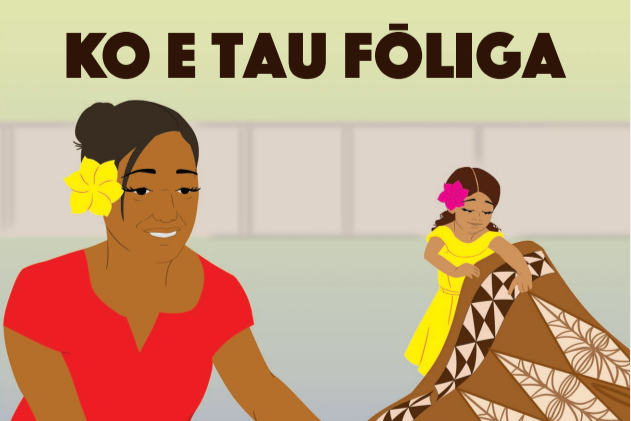-
Mō mātou About Us
-
Pārongo matua Parent Info
-
Piri'anga Alofa Community Services
-
Ngā auaha Innovations
-
Ngā tūranga mō wātea Work for Us
-
Ngā kārere NewsKindergarten Taranaki Joins Whānau Manaaki Kindergartens All North Island Kindergartens Closed Today Due to Extreme Weather Submission on the Education and Training Amendment Bill Kōriporipo Report Partnership to Provide Free Hearing and Vision Testing Government undermines early childhood education, ignoring parents and the sector Community Health Event in Palmerston North Le Fale Jobs and Skills Hub Porirua Employers Event Whānau Pānui August Edition Now Available Consultation on Licensing Criteria Changes to Family Boost Scheme Labour MP's Visit Masterton West Kindergarten Kindergartens Stand Strong for NZEI Te Riu Roa Day of Action Nau mai, haere mai KidzWay Kindergarten! Wellington Central MP Tamatha Paul visits Campbell Kindergarten Concerns Raised over Early Childhood Funding Review MP Suze Redmayne Visits Kimbolton Kindergarten Whānau Manaaki Kindergartens Support Pay Equity Inquiry Calling on PM to Back Quality Early Childhood Education Effective Cut to ECE funding in Budget 2025 Kindergartens visit MP Offices with NZEI Petition Supporting Kindergarten Families with Essential Items in Porirua Statement By Whānau Manaaki Regarding Te Tiriti o Waitangi Kindergartens Support Te Tiriti
- Search
- Contact Us
- Find a Kindergarten
- Navigation
- About Us Our Values Our Structure Our People The Board Annual Reports Policies Kindergartens Aotearoa
- Parent Info Our Kindergartens Information for Whānau Fees and Contributions Get Involved Whānau Newsletters Register your Interest
- Community Services Community Navigation Service Le Fale Jobs and Skills Hub Etu Ao
- Innovations E Tū Kaha | Stand up Strong Pacific Kindergartens Arohanui Kindergarten Tai Tamariki Kindergarten Celebrations Whakanuia 120 Year Jubilee Whanganui Equity and Well Being Profile Te Tohu Urupare KOWHEORI-19 | COVID-19 Response Recognition Award Whānau Manaaki Publishes Pacific Language Children's Book
- Work for Us Why Work for Us? Application Requirements Vacancies
- News Kindergarten Taranaki Joins Whānau Manaaki Kindergartens All North Island Kindergartens Closed Today Due to Extreme Weather Submission on the Education and Training Amendment Bill Kōriporipo Report Partnership to Provide Free Hearing and Vision Testing Government undermines early childhood education, ignoring parents and the sector Community Health Event in Palmerston North Le Fale Jobs and Skills Hub Porirua Employers Event Whānau Pānui August Edition Now Available Consultation on Licensing Criteria Changes to Family Boost Scheme Labour MP's Visit Masterton West Kindergarten Kindergartens Stand Strong for NZEI Te Riu Roa Day of Action Nau mai, haere mai KidzWay Kindergarten! Wellington Central MP Tamatha Paul visits Campbell Kindergarten Concerns Raised over Early Childhood Funding Review MP Suze Redmayne Visits Kimbolton Kindergarten Whānau Manaaki Kindergartens Support Pay Equity Inquiry Calling on PM to Back Quality Early Childhood Education Effective Cut to ECE funding in Budget 2025 Kindergartens visit MP Offices with NZEI Petition Supporting Kindergarten Families with Essential Items in Porirua Statement By Whānau Manaaki Regarding Te Tiriti o Waitangi Kindergartens Support Te Tiriti
Government Axes Successful Literacy Project
Published on Nov 14

Search WM kindergartens

The government has axed a Pasifika early literacy project (PELP) which was developed ten years ago and which has had positive evaluation results. The programme supports children who learn in Pacific early learning services to successfully transition to school.
It involves using books that relate to the different Pacific cultures and world view, so that literacy is meaningful to the child. Whānau Manaaki Kindergartens is writing a submission in support of the programme. Senior Teacher Andy Cairns says those teams that have been involved in the programme have found it really beneficial.
The Ministry of Education’s own external evaluation found that:
- PELP has had a strong impact on educator and teacher pedagogy and practice.
- PELP has had a particularly strong impact on educators’ and teachers’ emphasis on practices that focus on children’s oral language as the foundation for their early language and literacy development.
- PELP has made a powerful contribution to educators’ and teachers’ developing mindsets that are oriented toward Pacific children’s language and literacy learning success in both Pacific languages and English.
- PELP has supported educators and teachers and Pacific families and whānau to develop deeper and more reciprocal learning-focused partnerships.
- PELP has supported Pacific learners to view language and literacy learning as relevant and engaging and to use oral language and their prior knowledge and experiences to make meaning of Pacific and English texts.
- PELP has made space for the languages, cultures, and identities of Pacific children
The Ministry of Education's Pacific Education Action Plan states, “We must ensure that Pacific learners, families, and communities have the support they need to thrive in their education and maintain their cultural identities.” The Tapasā Framework also highlights the importance of “culturally responsive teaching and learning” which is at the heart of PELP’s mission.
Opponents of the funding cuts have described them as systemic racism, undermining children’s rights to have their languages, cultures, and identities validated at centre and school.
